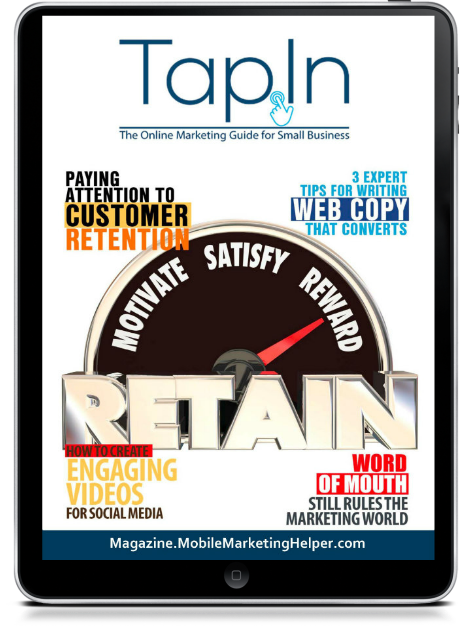It doesn’t matter what niche or industry you are in. Competition is part of the game, and if you’re dealing with customers online you might have to deal with competition that’s local as well as competitors from around the world. What that means is that providing a fantastic online customer experience is more important than ever before.
Here are some suggestions to help you ensure a smooth and enjoyable experience for your online customers.
Go Mobile Friendly
As of 2015, more online searches were conducted on mobile devices than on computers, a trend that is expected to continue into the foreseeable future. To give your customers a great mobile experience, you should pick a mobile responsive design for your website, and make sure that any emails you send out are optimized for mobile users. Some things to keep in mind for email include keeping your text in a single column and including alt tags for your images in case they don’t load properly.
Streamline the Navigation of Your Site
Bad or confusing site navigation is one of the most common reasons that web users hit the dreaded “back” button on their browser. The navigation for your website needs to be extremely user-friendly and intuitive. That means that your menu should appear either at the top of your home page or on right margin. Everything should be clearly labeled.
Other things to keep in mind are making it easy to return to your home page from anywhere on your site by making your logo a hyperlink back to your home page. You should also have a search option at the upper right-hand corner of your site, and contact information on the footer of every page.
Minimize Data Collection
When people sign up for your mailing list, how much information do you request? Research shows that every field you add to your opt-in form reduces your conversions by approximately 11%. If all you’re doing is collecting names for your mailing list, consider limiting your form to just an email address – or at most, an email address and a first name so you can personalize your emails.
Payment screens require additional information, but again, keep it to a minimum. If you don’t need a company name or an age, don’t ask for it. Stick to the basics and you’ll increase your conversions and sales.
Highlight Reviews and Testimonials
Research shows that an overwhelming majority of online consumers look at reviews before making a buying decision. Furthermore, even one negative review can be enough to change someone’s mind about buying a product or signing up for a service.
You can do a lot to ease customer doubts and overcome fears by linking to your review pages on sites like Yelp, Angie’s List, and Google My Business. Linking to off-site reviews is especially helpful because they are perceived as objective where customer testimonials on your website are not.
That said, it is also a good idea to include some testimonials or case studies on your site. People want to know that your company has helped people like them, and testimonials are a good way to demonstrate that to them.
Do A/B Testing
One mistake that a lot of companies make is not testing their websites and emails. The truth is that conversion is a science. There are many psychological factors that go into the buying decisions we make, including things like:
- Color choices
- Font choices
- Page layout
- Headlines
- Graphics
A/B testing, which is also sometimes referred to as multivariate testing, can help you test out multiple options of every aspect of your website and marketing materials. Sometimes even a small change, such as switching a call to action button from red to green, can make a big difference in your conversions – and in how customers feel about your company.
Maintain an Active Social Media Presence
The days when companies can afford to ignore social media as a marketing tool have long since passed. With more than two billion social media users worldwide, you need to maintain some kind of social media presence to keep up with your competitors. Here are some things to keep in mind:
- Choose the social media sites you use wisely based on your customer avatars or personas.
- Don’t set up accounts that aren’t active. Any active account you have must feature regularly updated content.
- Don’t post identical content across multiple platforms. Modify your content to fit the medium. For example, on Pinterest you might share an infographic with a link back to your blog. On Twitter, a link to your blog with a few well-chosen hashtags is the way to go.
- Monitor your comments and reply to them as needed. The people who follow your company on social media want to feel valued.
Manage Your Online Reputation
What are you doing to manage your online reputation? Your reputation is the sum total of everything that is said about you online, including what’s on your website as well as:
- What you post on social media
- Social mentions, including mentions that are made on sites where you don’t maintain an active presence
- Online reviews
- Online listings
Everything you say and do online is part of your online reputation. To manage it effectively, you need to:
- Maintain a consistent tone and brand image across all online media
- Respond quickly and professionally to customer service requests
- Deal with negative reviews in a calm way that mitigates bad experiences and turns them into positives
- Makes customers feel engaged and valued
If you do all of these things, the image you project will be consistent and an accurate reflection of your brand.
Provide Great Customer Service
Finally, and perhaps most importantly, you need to provide excellent customer service everywhere your customers find you online. That means having clear help links on your website, a well-thought-out FAQ page, and contact information that’s easy to find. It also means integrating your customer service with your social media presence so that customers who ask questions receive quick and accurate responses that help them resolve issues.
Providing a great user experience online doesn’t have to be complicated, but you do need to make a real effort to coordinate everything you do so that wherever customers encounter you or your brand, the leave satisfied.
Check out our Online Digital Magazine for small business. We cover topics that resonate with local businesses just like yours.
Our goal is simple. We want to enable you to do big things online, and it all starts by breaking down the complexities of marketing your business online.
CLICK IMAGE ==>

Kevin Cortez
Founder | CEO of Mobile Marketing Helper
Kevin is an accomplished business owner, dynamic keynote speaker, and inspiring author. He has been featured in Voyage Dallas Magazine as one of “Dallas’s most inspiring entrepreneurs!”


